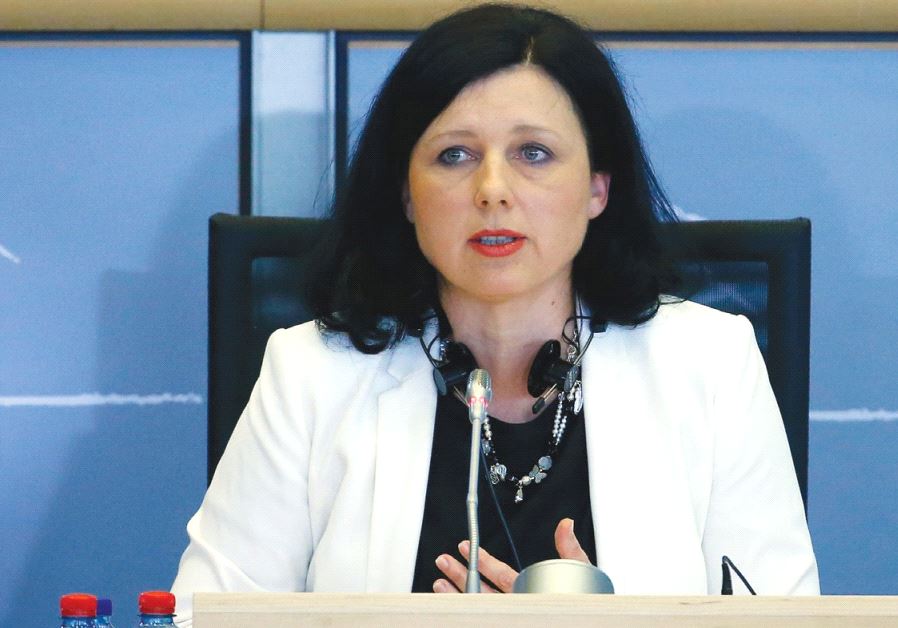EU justice minister: progress made in fighting antisemitism on social media
“Lawyers and experts have to consider that this hate speech can incite real violence in the real world.”
 EU COMMISSIONER for Justice, Consumers and Gender Equality Vera Jourova.(photo credit: YVES HERMAN / REUTERS)Updated:
EU COMMISSIONER for Justice, Consumers and Gender Equality Vera Jourova.(photo credit: YVES HERMAN / REUTERS)Updated: